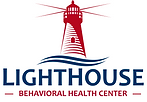1119 E Monument Street, Baltimore, MD 21202
INTENSIVE OUTPATIENT SERVICES
Program Scope of Services - Intensive Outpatient Services (ASAM Level 2.1)
Population(s) served:
LHBHC provides care to Adults who reside in Maryland.
Settings:
We offer our services in our office for most outpatient services, or in community and in-home.
Referrals to LHBHC's higher levels of care may occur for some clients based on symptoms. If our clients need more intensive care like a hospital medical unit, a nursing home, an adult medical daycare center, and emergency rooms- we cannot deliver services in those locations.
Hours of services:
7:30 AM to 5:30 PM
After hours for crisis and scheduled appointments only
Days of services:
Monday – Friday
Weekends for crisis and scheduled appointments only
Frequency of services:
As scheduled as needed basis
Payer sources:
Medicaid and private pay
Fees:
Current approved Medicaid and Medicare fee schedules for Maryland
Referral sources:
Self, walk-ins, community agencies, insurers, healthcare providers, governmental agencies
Specific services offered:
All services are rendered by independent contractors who are licensed or certified behavioral health professionals.
The program shall provide outpatient evaluation and treatment to patients who require services for less than 9 - 20 hours weekly for adults and 6 hours weekly for adolescents. Patients who are appropriate for this level of treatment shall: Meet the current edition of the American Society of Addiction Medicine Patient Placement Criteria for Level II.1, or its equivalent as approved by the Administration; and Have a physical and emotional status that allows them to function in their usual environment.
We provide an assessment within 1 weeks of admission; an individualized treatment plan completed and signed by the alcohol and drug counselor and patient within 5 working days of the comprehensive assessment and updated every 30 days; Case management services; At least one group counseling session a week; At least one individual session every 2 weeks; Family services that shall include an assessment for family treatment needs and, as clinically appropriate: Alcohol and drug education; and Family counseling.
Referral Services. The program shall offer the following services or maintain a listing of agency referral agreements for the following services:
(1) Medical services with medical consultations available:
(a) Within 24 hours of a request for service by telephone for intensive outpatient services;
(b) Within 72 hours of a request for service in person for intensive outpatient services;
(c) Within 8 hours of a request for service by telephone for partial hospitalization services; and
(d) Within 48 hours of a request for service in person for partial hospitalization services;
(2) Services through the Division of Rehabilitation Services;
(3) Vocational assistance;
(4) Mental health services with psychiatric consultations available:
(a) Within 24 hours of a request for service by telephone for intensive outpatient services;
(b) Within 72 hours of a request for service in person for intensive outpatient services;
(c) Within 8 hours of a request for service by telephone for partial hospitalization services; and
(d) Within 48 hours of a request for service in person for partial hospitalization services;
(5) Substance abuse treatment programs;
(6) Legal assistance; and
(7) Social services.
Entry criteria:
Called Intensive Outpatient Services for adolescents and adults, this level of care typically consists of 9 or more hours of service a week or 6 or more hours for adults and adolescents respectively to treat multidimensional instability. Level 2 encompasses services that are capable of meeting the complex needs of people with addiction and co-occurring conditions. It is an organized outpatient service that delivers treatment services during the day, before or after work or school, in the evening, and/or on weekends. A detailed description of the services typically offered in this level of care, the care setting and how to identify what patients would benefit best from these services based on an ASAM dimensional needs assessment, begins on page 198 of The ASAM Criteria: Treatment Criteria for Addictive, Substance-Related, and Co-Occurring Conditions (2013).
Transition / Exit criteria:
Discharge/transition planning occurs throughout all phases of the program. The person served has met discharge/transition criteria when the goals of the individual plan are achieved and referral to support services is completed, when appropriate. Additionally, discharge may occur if the person no longer attends regularly or chooses not to actively participate in the program.
Description of the program:
Behavioral health programs are provided in a clinic, inpatient and residential setting. A wide range of services are organized within a comprehensive therapeutic environment that includes screening and assessment, diagnostic determination, individual and family counseling, consultations, medication management, crisis intervention, group counseling, client advocacy, and referral to community resources. Clients are assigned to licensed and/or certified personnel who assist in individual planning and care. Services additionally include consultation with family and/or professional care providers.
Philosophy of the program:
Behavioral health programs to assist persons with developing and maintaining coping skills that facilitate adjustment and integration within their living environments and community. Clients and family members are empowered to make decisions about their care with the expected outcome of an increased quality of life. Services are designed and implemented to: support the recovery, health, or well-being of the persons or families served; enhance the quality of life of the persons served; reduce symptoms or needs and build resilience; restore and/or improve functioning; support the integration of the persons served into the community.
Program goals:
The overall goal of the programs is to increase the quality of life through the provision of specialized outpatient mental health services. Specific areas of focus may include: Recovery, Vocation/Education, Parenting, Relationships, Spirituality, Coping Skills, Anger Management, Grief and Loss. The program seeks to achieve the following specific objectives: To improve mood and affect in daily living; To improve social, familial, and social adjustment and integration; To reduce the need for a higher level of care.
This information is posted on the website and in brochures and is updated annually.
PROGRAM CONTACTS

Vernon Holmes, Jr., MBA

Nina Manley

